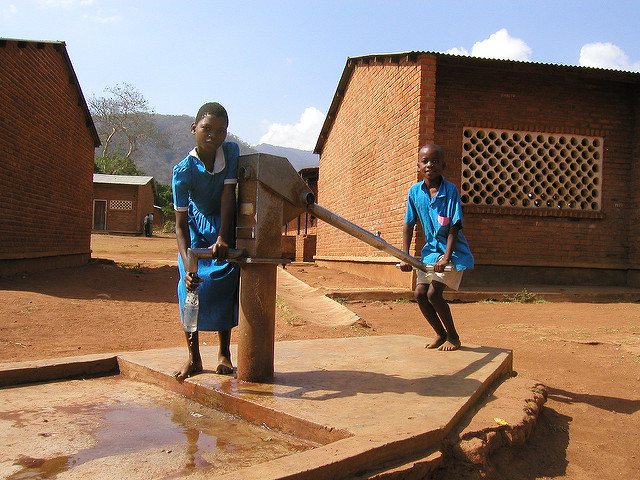-
Evaluating Enterprise: Twenty Years of Conservation Through Sustainable Livelihoods
›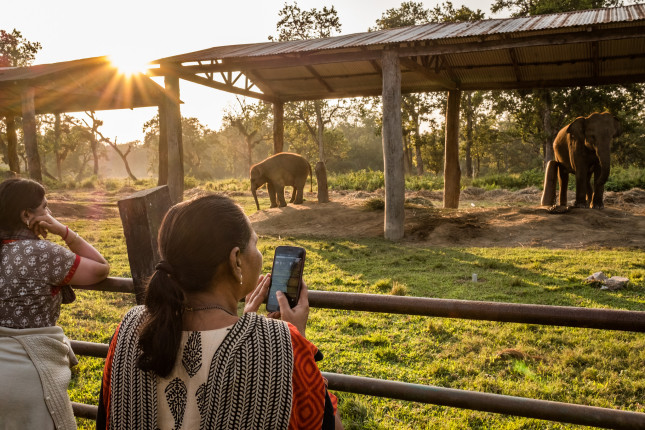
“It’s not often that we have the opportunity to go back to a site 20 years later and see what happened,” said Cynthia Gill, Director of USAID’s Office of Forestry and Biodiversity during a recent Wilson Center event on a retrospective evaluation of the “conservation enterprise” approach to biodiversity. Conservation enterprises are income-generating activities that provide social and economic benefits and help meet conservation goals.
-
Rush Hour: Three Commutes, Three Stories
›
“The idea to make this film came from a very personal place,” said filmmaker Luciana Kaplan at a recent Wilson Center screening of her documentary Rush Hour, recalling how a woman who worked for her spent six hours a day on public transportation. “I have to make a film about this,” she said she told herself, “because this is a silent enemy that is attacking all of us in big cities.”
-
Water Security in a New Age of Nationalism
›
The idea of a “new middle” or “third way”—a blend of neo-liberal economic doctrines and social policies that was supposed to overcome the dichotomy between mixed economy and free market paradigms—more or less dominated U.S. and European politics for the last two decades. But today, this centrist consensus has been upended by a wave of populist, nationalist parties. Many have won over their electorates by questioning the benefits of free trade and globalization (as well as the international institutions that espouse them), while pursuing expansionary domestic economic policies.
-
Parfait Eloundou-Enyegue: Moving from Laundry Lists to Bottom Lines
› “A lot of the advocacy of family planning has been built around establishing a long list of the many ways in which family planning can be relevant” to other development goals, says Parfait Eloundou-Enyegue of Cornell University in our latest Friday Podcast. While comprehensive accounts of the ways family planning access benefits communities, these “laundry lists” are not “clear, synthetic, or integrative,” he says.
“A lot of the advocacy of family planning has been built around establishing a long list of the many ways in which family planning can be relevant” to other development goals, says Parfait Eloundou-Enyegue of Cornell University in our latest Friday Podcast. While comprehensive accounts of the ways family planning access benefits communities, these “laundry lists” are not “clear, synthetic, or integrative,” he says. -
A More Prosperous World: Investing in Family Planning for Sustainable Economic Growth
›
“There is a close relationship between fertility rates and health on one hand, and economic growth on the other,” said Peter McPherson, President of the Association of Public Land-Grant Universities and former USAID Administrator, at the final event in a three-part series on the role of population and family planning in supporting economic growth, health, and education.
-
Jocelyn Ulrich: Enhancing Public Health to Unleash the Economic Power of Women
› Healthy Women, Healthy Economies is a global initiative that aims to unleash the “economic power of women by bringing governments, private sector, and other civil sector actors together to improve women’s health,” says Jocelyn Ulrich of EMD Serono (known as Merck KGaA, Darmstadt, Germany outside of the US and Canada) in our Friday Podcast. Providing for women’s health needs enables them to “join, thrive, and rise” in the economy, “bringing prosperity home to their families and communities.”
Healthy Women, Healthy Economies is a global initiative that aims to unleash the “economic power of women by bringing governments, private sector, and other civil sector actors together to improve women’s health,” says Jocelyn Ulrich of EMD Serono (known as Merck KGaA, Darmstadt, Germany outside of the US and Canada) in our Friday Podcast. Providing for women’s health needs enables them to “join, thrive, and rise” in the economy, “bringing prosperity home to their families and communities.” -
China’s Waste Import Ban: Dumpster Fire or Opportunity for Change?
›
In early January of this year, China’s “National Sword” policy banned imports of non-industrial plastic waste. The ban forces exporting countries to find new dumping grounds for their waste, which is estimated to total nearly 111 million metric tons by 2030. China’s decision has exposed deep structural flaws and interdependencies in the global waste management system. Western countries that have long depended on China to take their garbage are now struggling to deal with mounds of plastic trash, while China lacks the low-priced labor needed to effectively sort and process waste.
-
Family Planning Can Mean Big Progress for the Sustainable Development Goals—And Here’s How
›
As the UN High-Level Forum on Sustainable Development continues this week, member states and civil society are taking a hard look at countries’ progress toward securing safe drinking water, sanitation, and adequate housing. Achieving these and the other Sustainable Development Goals (SDGs) requires recognizing the synergies among them—including the role that reproductive health and family planning can play. You may ask, “Why does family planning matter for the SDGs not related to health?” The answer is that it is one of the most cost-effective investments for achieving the SDGs. Increasing access to family planning provides sweeping social, economic, and environmental benefits for every dollar spent.
Showing posts from category economics.




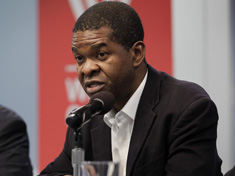 “A lot of the advocacy of family planning has been built around establishing a long list of the many ways in which family planning can be relevant” to other development goals, says Parfait Eloundou-Enyegue of Cornell University in our latest Friday Podcast. While comprehensive accounts of the ways family planning access benefits communities, these “laundry lists” are not “clear, synthetic, or integrative,” he says.
“A lot of the advocacy of family planning has been built around establishing a long list of the many ways in which family planning can be relevant” to other development goals, says Parfait Eloundou-Enyegue of Cornell University in our latest Friday Podcast. While comprehensive accounts of the ways family planning access benefits communities, these “laundry lists” are not “clear, synthetic, or integrative,” he says.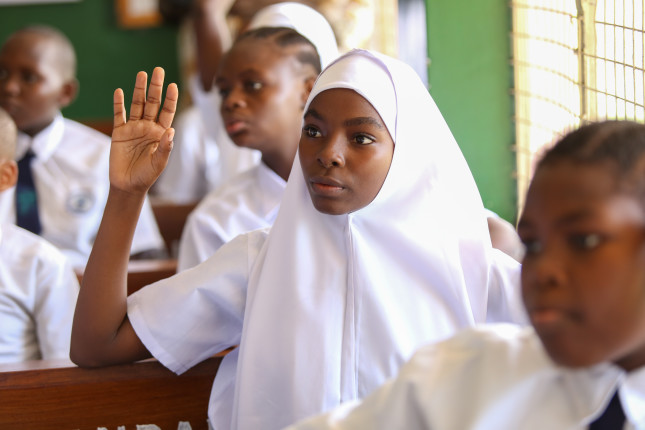
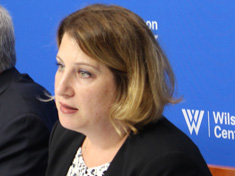 Healthy Women, Healthy Economies is a global initiative that aims to unleash the “economic power of women by bringing governments, private sector, and other civil sector actors together to improve women’s health,” says Jocelyn Ulrich of
Healthy Women, Healthy Economies is a global initiative that aims to unleash the “economic power of women by bringing governments, private sector, and other civil sector actors together to improve women’s health,” says Jocelyn Ulrich of 
